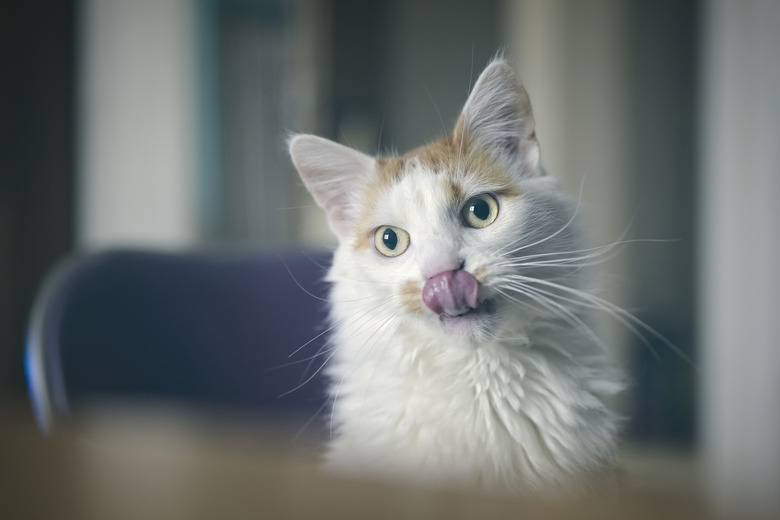Can Cats Eat Chicken Bones?
As you clear away a plate of wings from last night's barbecue, you may wonder, "Can cats eat chicken bones?" Why toss perfectly good bones if your kitty might enjoy them? But table scraps and cats don't always mix well, and the wrong ones could lead to serious health complications.
When it comes to cats and their dietary needs, it's smart to have a chat with the vet. The pet doc can give you a list of the verboten people foods for dogs and cats and can suggest quality commercial brands to purchase. Remember to keep your cat's safety top of mind when it comes to table foods.
Can cats eat chicken bones?
Can cats eat chicken bones?
Among the many things that should not be fed to cats (or dogs, for that matter) are chicken bones. Ribs are a related no-no, and the reason that both aren't smart for kitties is the risk of splinters.
When a cat gnaws on cooked chicken, it's possible that the bone may shred into sharp slivers that can puncture your cat's throat or even create tears in the digestive system. Eating a chicken bone is also a choking hazard for a cat if she's unable to break it into small pieces. Along with chicken bones, keep chocolate, onions, grapes, raisins, and yeasted dough out of your cat's bowl.
Raw chicken bones vs. cooked
Raw chicken bones vs. cooked
If cooked chicken wings are off the menu, then can cats have raw chicken? In terms of safety, there is a difference between raw and cooked bones for cats. If you consider the cat's origins as an animal who lived in the wild for much of his existence, feasting on rodents, birds, and other small prey makes natural sense. A cat who lives exclusively outside will kill a mouse and eat nearly the whole thing, bones and all, which means a domesticated cat can probably handle a small amount of raw chicken bone in his diet.
If you want to offer raw chicken to your kitty, look for tiny bones, such as the ones found in wings and necks or those from small birds, like quail. As he samples raw bones, note how he handles them in terms of digestion and his stool output. If he shows signs of stomach upset or has constipation, lower the amount of bone in his diet. If diarrhea is a problem, nix bones altogether.
If your pet eats something forbidden
If your pet eats something forbidden
Accidents happen, of course, whether your cat nibbles a grape that rolled onto the floor, she samples a lily growing in your yard, or she eats a mouse that's been killed with rodenticide. It's also possible that your cat could come in contact with a toxin on her fur, especially since cats spend significant time grooming their own coats. Be aware of the common signs of poisoning in cats, including coughing, diarrhea, breathing trouble, seizures, unsteady walking, lethargy, excessive drinking, weakness, or a loss of appetite. When you take your pet to the vet, bring the substance you think your cat tasted (the food or the label of the pesticide).
To prevent potential accidents from occurring in the first place, keep a list of foods your cat shouldn't eat posted where everyone can see it and be sure to keep toxic substances locked up and out of your cat's reach. Make a point to clean up spilled bleach, antifreeze on the driveway or garage floor, and any bits of food that could upset your cat's stomach.
If you have a dog in your house, be sure to keep his food away from your cat. It seems as if wet and dry pet foods are interchangeable, but they're actually quite different from a nutritional standpoint. In fact, if you feed your cat the same food as your dog, she could become dangerously malnourished.
References
- Feline Nutrition Foundation: Answers: Raw Food for Cats, What About Eating Bones?
- American Society for the Prevention of Cruelty to Animals Pet Health Insurance: Top 10 Unsafe Foods for Cats
- Banfield Animal Hospital: What Pets Should Never Eat
- Dunnellon Animal Hospital: How Can I Tell if My Cat Has Been Poisoned
